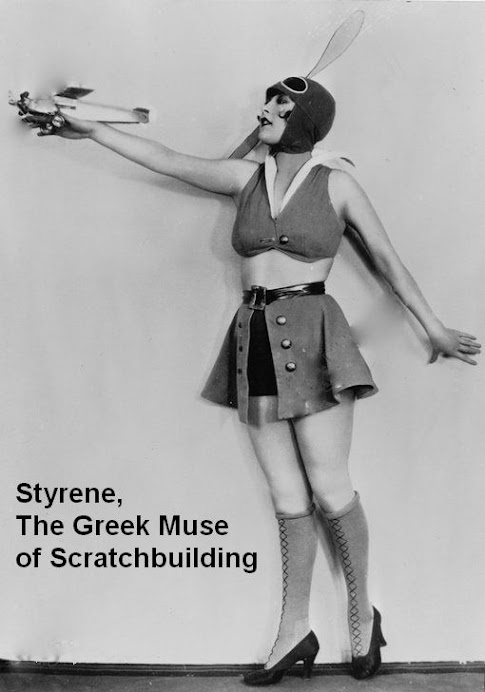http://wingsofintent.blogspot.com/2013/02/scratchbuilt-172-scale-arup-s4-trike.html
The Arup family of planes had the goal of providing an economical, reliable, low speed machine that was easy to fly and simple to build and maintain.
During the thirties there were a number of attempts by
different countries to achieve that elusive goal.
Some time ago I made replicas of some of those attempts:
-http://www.arcair.com/Gal8/7701-7800/gal7739-motorglider-Stern/00.shtm
-http://www.internetmodeler.com/artman/publish/aviation/Scratch-built_1_72_Eshelman_Flying_Flounder_printer.php
-http://www.internetmodeler.com/artman/publish/aviation/Scratch-built_1_72_Eshelman_Flying_Flounder_printer.php
The Arup series of flying wings is well known to the
enthusiasts, but even general aviation buffs sometimes never heard of them.
The model presented here is a nose tricycle modification of
the S.4 model, powered by a 70hp LeBlonde engine and a span of 22 feet. Access
was via a hatch that opened partially bellow the left wing and partially on the
fuselage side. It could carry two people with dual controls and had the
registration 14529.
There is plenty on the Internet about the Arup wings, so if
you feel curious use your fingers and look it up.
In the photos you will see two wings in process, since I
approached its constructions in two slightly different ways, to use the one
that would come up better.
Struts were made of Contrail extruded styrene airfoiled
material, and also brass “Strutz”.
Nose wheel is from Khee-Kha Art Products and so is the nice
resin engine (a Jacobs) that I disrespectfully chopped to the get the cylinders
for my model. Main wheels are from Combat Models and white metal tail wheel
from Aeroclub (oh, guys, how much do I miss your Internet store). The prop blades
were carved from the said Contrail stock and the spinner/engine fairing
compound made of a redeemed spare box unidentified bomb or missile.
Undercarriage made of several sizes of Contrail airfoiled material:
AND guess what....I forgot to add weight to the nose! now it is definitely a tail sitter
In any case, the space available in the fuselage was minimum. If any of you makes one of these, the leading edge of the wings is...err...the place were you could put your...lead (lead-in-g edge :-)
Next image shows the painting in process. Based on the very little I have on this particular version I tend to think the plane was painted a light color, and the regs not black, but a medium color. So I opted for yellow and red. Photos show the beginning of the regs on the left underwing, so I extrapolated the natural choice of them being too on the upper surface of the right wing.
The Future treatment, one step closer:
























Lovely... airplane? That's an empanada!
ReplyDeleteHey, more respect!
Delete:-)
Remember the other "Empanadaplane"?:
http://www.internetmodeler.com/2007/may/aviation/Farman_1020.php
You're a machine Claudio!
ReplyDeleteYour production rate is many times that of most modellers using kits, I don't know how you manage it! The Arup's a cute little beast, but I'm not sure how well it would have flown.
Cheers,
Mark
NZ
Dear Mark
DeleteAll Arup models flew exceptionally well; unanimously its pilots highly regarded its characteristics.
Another victim of design prejudice.
See here:
http://www.youtube.com/watch?v=Nxz1UF67EQI&noredirect=1